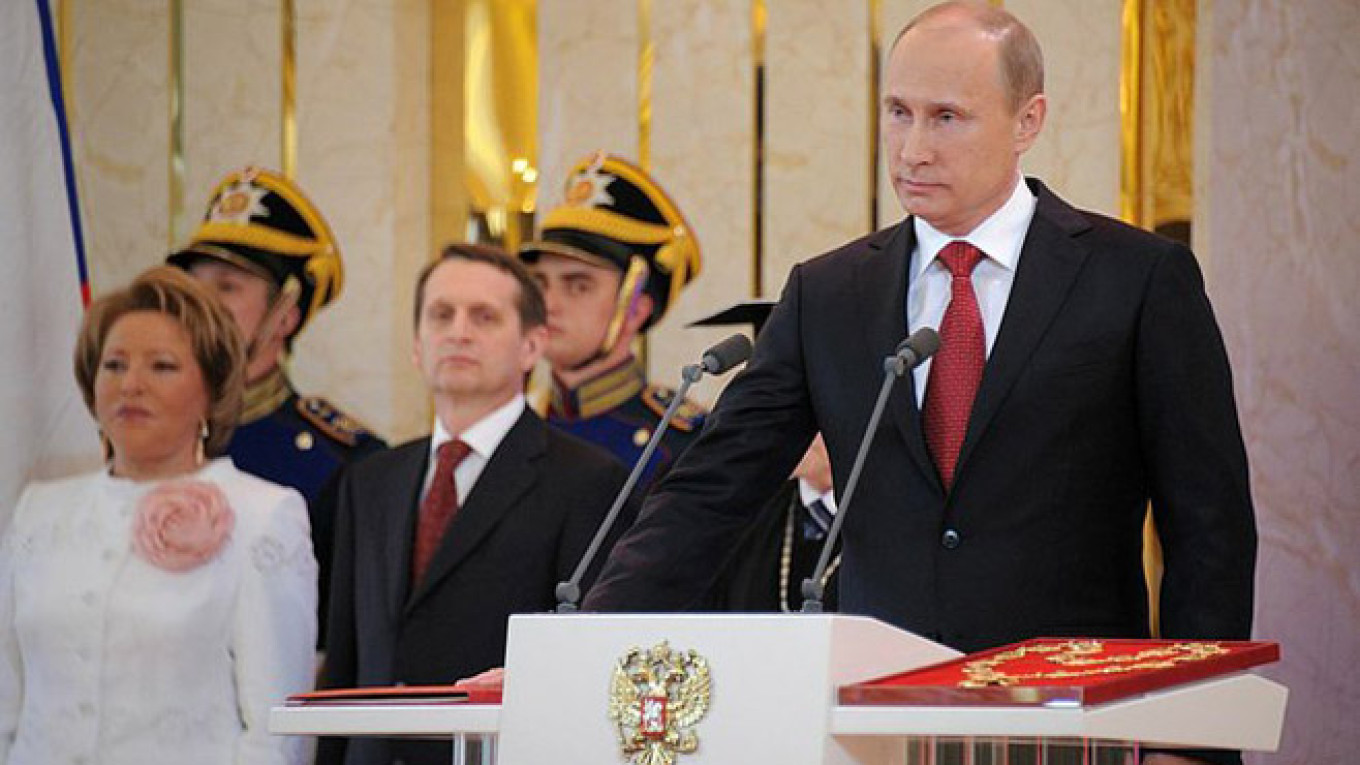President Vladimir Putin's recent visit to China, made amid worsening relations with the West, has been perceived in the broader context of the search for new political allies and markets for Russian oil and gas. However, recent steps by Putin suggest that to understand what future Russia may face, one should refer to country's distant past, not economic or geopolitical factors.
Russia's first turn from the West to the East happened almost 800 years ago. At the end of the 13th century, one of the most powerful Russian states, the Novgorod Republic, successfully resisted attacks from the West by Livonian and Teutonic knights seeking to convert Orthodox Russians to Catholicism. Prince Alexander Nevsky, at the time the elected ruler of the Novgorod republic and later canonized by the Orthodox Church, considered the Teutonic knights more dangerous than even the Mongols. After the Mongol army was stopped at the borders of Novgorod lands, he agreed to pay regular tribute to the Mongols to reduce the threat from the West.
By securing the nonintervention of the Mongols into the Russian faith, the prince laid the foundations for Russia's "asiatization," the consolidation of absolute power and the creation of a rigid boundary between Europe and Russia. The West turned in the minds of the Russians into a major source of danger and evil — despite the fact that for 200 years after Prince Alexander's death there were Mongols and Tartars who repeatedly devastated Russian lands.
We witness a similar situation today. Conflict between Russia and the West is not only caused by diverging political interests. Putin, a devoted Orthodox Christian, perceives the West not just as a legalistic society whose rules threaten his personal power, but as a decadent, anti-religious and ignorant society. He sees the expansion of the European Union and NATO as the same kind of threat that Prince Alexander had seen in the Teutonic knights, and he sincerely believes that this threat should be resisted at any price.
China, like the Mongols, is not seen by Putin as threatening to the "unique" Russian identity: Beijing does not insist on democratization and it is not promoting human rights or the adoption of "universal" values. Paying an economic tribute in such a situation looks natural and is an acceptable price for such a protection. There is a growing perception in the Kremlin that vassalage from Beijing, which Putin visits more often than Prince Alexander visited the Mongol's capital, looks more preferable than integration into Europe.
Russia's turn to the East comes not from the rational reasons, but from the phobias of contemporary Russian authorities and from their perception of the country not as a modern nation-state, but as a holy grail embodying sacred proto-national and quasi-religious values.
This turn is not an opportunistic one. It has deep sources, and the West should be prepared to wait a long time before Russia turns back to Europe.
Indeed, Russia will need to become as underdeveloped as it was before the reforms of Peter the Great before it changes its path. Only then will Russia will once again be willing to change its stance toward Europe and the West. Even long after that happens, though, Russian conservatives will pray in front of the icons of both St. Prince Alexander and freshly canonized St. President Vladimir.
Vladislav Inozemtsev is a professor of economics and director of the Moscow-based Center for Post-Industrial Studies.
A Message from The Moscow Times:
Dear readers,
We are facing unprecedented challenges. Russia's Prosecutor General's Office has designated The Moscow Times as an "undesirable" organization, criminalizing our work and putting our staff at risk of prosecution. This follows our earlier unjust labeling as a "foreign agent."
These actions are direct attempts to silence independent journalism in Russia. The authorities claim our work "discredits the decisions of the Russian leadership." We see things differently: we strive to provide accurate, unbiased reporting on Russia.
We, the journalists of The Moscow Times, refuse to be silenced. But to continue our work, we need your help.
Your support, no matter how small, makes a world of difference. If you can, please support us monthly starting from just $2. It's quick to set up, and every contribution makes a significant impact.
By supporting The Moscow Times, you're defending open, independent journalism in the face of repression. Thank you for standing with us.
Remind me later.


